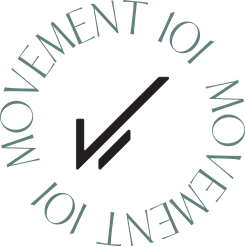|
Anyone suffering from chronic pain knows how incapacitating it can be. It can severely limit your wish to be physically active. Since you are always in pain, the last thing you want is to partake in activities that can worsen your condition, even though it’s just to move around. Luckily, regular exercise can help to reduce and manage chronic pain. This post will provide an overview of the relationship between exercise physiology and chronic pain management.
What is Chronic Pain? Chronic pain is defined as pain that is ongoing and continues for six months or longer. Chronic pain doesn’t indicate the type of severity of the pain; it can easily be referred to as an intense and sharp pain that limits you when you move a certain way. It has been estimated that 1 in 5 Australians is living with chronic pain. It’s often complex because chronic pain involves changes to the central nervous system that makes the nerves continue sending pain signals to the brain even after your illness or injury have healed. It can be quite difficult to pinpoint the cause of the pain, and when this happens, diagnosis and treatment can become a case of trial and error. How Can Exercise Help Manage Chronic Pain? Exercise can be an effective way to reduce and manage chronic pain. Exercise helps reverse the changes to the central nervous system and avoid aggravating the pain. This can help you engage more in physical activities to increase the quality of your life by making your daily activities easier to perform. Plus, exercise helps improve your sleep patterns; sleep disorder is often found in people who have chronic pain. Depression, anxiety, or chronic pain itself can reduce with quality sleep. Exercise Physiology for Chronic Pain An accredited exercise physiologist is the mark of a qualified and experienced health professional who knows how to help treat people that suffer from chronic pain symptoms and a whole lot of other health conditions. A skillful and experienced exercise physiologist can achieve the best results possible for their clients by adopting a holistic approach to recovery. Your exercise physiologist will likely perform testing to improve your progress, including cardiorespiratory, strength, flexibility, endurance, and nutrition. As part of your treatment, your exercise physiologist will strengthen, stretch, test balance and coordination abilities, facilitates muscles and offers exercise training to facilitate your treatment plan. Your exercise physiologist will integrate a clinical exercise prescription with the right lifestyle advice to get you back on your feet and regain your quality of life. They can help you to achieve and sustain positive health and lifestyle changes through personalized exercise interventions. Besides, your exercise physiologist can work together with other health specialists to coordinate treatment in recovery settings. How We Can Help? Our experienced exercise physiologists can help with chronic understanding pain and work with you to help manage your pain and improve your range of motion. If you need any help, please contact Movement 101 to meet with an exercise physiologist to find an individualized solution for your need. Learn more about how our Exercise Physiologists can help you. Movement 101 Botany, Marrickville, Waterloo & Wolli Creek Comments are closed.
|
AuthorWrite something about yourself. No need to be fancy, just an overview. Archives
April 2024
Categories |
|
|
|


 RSS Feed
RSS Feed









